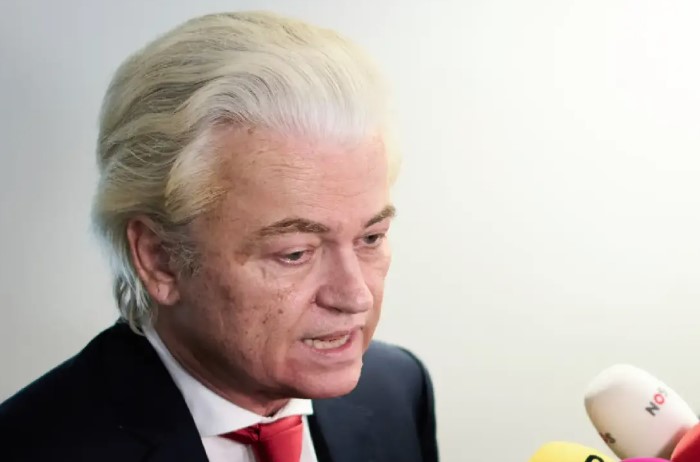The Dutch government has just faced a big shock. On Tuesday, far-right Party for Freedom (PVV) leader Geert Wilders announced his intention to quit the coalition government. This surprise move is expected to cause the government to collapse and may lead to new elections in the coming months.
Wilders’ Sudden Exit Shakes the Government
Wilders said the reason for his exit was that his coalition partners refused to support his strict ideas on stopping asylum migration. He demanded immediate agreement on plans to halt asylum seekers from entering the country, to send Syrian refugees back to Syria, and to close asylum shelters. When his demands were not met, he chose to pull his party out of the coalition.
“No signature under our asylum plans,” Wilders declared in a post on X (previously twitter). The PVV withdraws from the alliance. Additionally, he told Dick Schoof, the prime minister that every minister in his party would step down. As of now, the Prime Minister has not given a public response.
This exit ends a fragile coalition that had already been struggling since it was formed in July last year. Wilders’ decision could add to political uncertainty in the Netherlands, which is the fifth-largest economy in the euro zone.
Germany Rejects Controversial Immigration Bill Backed by Far-Right
Political Turmoil and Reactions from Partners
Wilders’ decision has caused strong reactions from his former coalition partners. Leaders from other parties expressed anger and disappointment.
Dilan Yesilgoz, the leader of the conservative VVD party, said, “This is making us look like fools.” She added, “There is a war on our continent. Wilders is demonstrating his unwillingness to accept responsibility by refusing to meet the challenge.”
Nicolien van Vroonhoven, the leader of the centrist NSC party, also criticized Wilders’ move, calling it “irresponsible to take down the government at this point.”
With the PVV party out of the coalition, the remaining parties theoretically could try to continue as a minority government. However, they have not confirmed if they will do this, and many experts do not expect it to happen.
Wilders’ PVV party had won the most recent Dutch election, but recent opinion polls show his support has decreased since he joined the government. Now, his party is polling at around 20% of the vote, which is roughly equal to the combined votes for the Labor and Green parties, currently the second-largest group in parliament.
Background of Wilders and the Current Government
Geert Wilders is a controversial figure in Dutch politics. His strong anti-immigration sentiments have been well-known. In 2014, Wilders was convicted for discrimination after insulting Moroccans during a campaign rally. Despite this, he managed to join the government last year by making a coalition deal with three other conservative parties.
Massive Corruption Network Tied to NATO Contracts Unearthed by Belgian Prosecutors
It’s interesting to note that Wilders does not serve as a minister or head of state. Dick Schoof, an independent and unelected prime minister, is in charge of the government instead. Schoof is a career official who served in a top position in the justice ministry and as the head of the Dutch intelligence organization AIVD.
Already brittle, the coalition was having difficulty reaching a consensus on a number of topics. One of the primary causes of contention was Wilders’ strict position on asylum migration. His demand for an immediate stop to asylum migration and return of Syrian refugees was not supported by other parties in the coalition. They argued that it was the job of the migration minister, who is from Wilders’ own party, to work on detailed proposals.
This political crisis will also affect the Netherlands’ role in international affairs. Later this month, the nation will host a summit of NATO leaders. The Netherlands will probably only have a caretaker administration during this crucial summit due to the government’s collapse. The summit is expected to discuss a possible historic increase in defense spending to meet new NATO targets. However, the political uncertainty might delay decisions on this matter.
The resignation of Wilders’ PVV party ministers marks a major moment in Dutch politics. It ends a fragile coalition and raises many questions about the country’s political future. The fallout from this decision will be watched closely, both within the Netherlands and across Europe.
